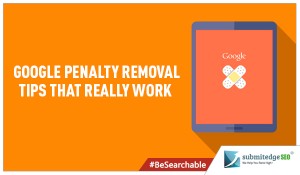The internet has turned local business on its head, giving rise to e-commerce companies like Amazon that compete with mom-and-pop shops in just about every retail category. The silver lining is that the mobile web has also made it easier than ever for people to search, find, and spend at local businesses.
In today’s economy, mobile searching is driving local spending, even for brick-and-mortar shops. Consider this: Nearly 3 in 4 consumers visit a store within 5 miles of their location after doing a “near me” search, and 28% of these searches result in a purchase. Try as they might, internet retailers can’t provide everything consumers want, especially when folks are driving around and want something now.
Local search is one of a growing number of free local advertising options for small businesses. It’s no longer necessary to outspend competitors on traditional advertising to attract new customers. For most local businesses, a few simple steps will ensure that people can find you organically precisely when they’re looking for the products or services you offer.
Claim your free business listings
Try this experiment sometime. Open a web browser on your smartphone and search for a restaurant, plumber, hair stylist, or auto mechanic in your town. What shows up in the search results? Chances are, you get a heavy dose of business listings from Google, Yelp, or similar review sites.
Your business probably has a listing on these sites whether or not you created one. If you don’t claim these free listings, you’re missing out on opportunities to attract new customers. This simple step could help your business earn 58% more money.
Claim your listings on all the relevant sites and make sure your business name, address, and phone number are accurate and consistent across all platforms. Post quality pictures and reply promptly to customer reviews. Make sure you complete your profile entirely and fill in every data point you can. Ensure that your hours of operation are correct and keep all your business information up to date and aligned with what’s on your website and social media profiles.
Get and reply to more online reviews
Search engines like Google and Bing use a bunch of criteria to decide which websites they serve up in response to search queries. For local businesses, online reviews make up about 10% of the equation.
Your business is more likely to get found in local searches if you have more online reviews and review replies. This means you should encourage your customers to leave online reviews for your business as often as possible on sites like Google, Yelp, and TripAdvisor (but never buy fake reviews). Be sure to respond to your reviews.
In addition to bolstering your local SEO presence, online review management is just a good business practice. Research shows that local businesses with above-average review counts earn 54% more, and people spend 49% more at businesses that reply to reviews.
Start a blog
When it comes to getting found online, content is definitely king. Blogging takes a little commitment, but it’s a proven way to show up in more internet search results and create awareness with potential customers.
There are lots of sophisticated SEO practices to optimize your blogging efforts, but start simple before trying to optimize your blog. As a first step, create a list of things your customers would search for online that relate to your business. Then, see which topics you can offer advice on through a blog post.
Let’s say you’re the owner or manager of a heating, ventilation, and air conditioning (HVAC) business. You know the common questions your customers ask during service calls. It’s not hard to imagine that many more people ask Google for answers to those same questions before — or instead of — calling you.
If you notice that lots of customers in your area are asking about the benefits of whole-home humidifiers, for example, then write a blog post with your thoughts and advice. Make sure you include a clear way for people to contact you (email, phone number, and a contact form) if they want to learn more or enlist your services, since your blog post might be their first introduction to you and your business.
Create location-specific content
Here’s a great tip for accounting for location-based searches on your website: write unique content for every business location.
Search engines use “on-page” cues, like the words you write on your website, to determine if your page is what searchers are looking for. So, if you run a cafe in San Francisco, you need to include phrases like “best cafes in San Francisco” and key variations in the headings, sub-headings, and body copy of your website.
(Pro tip: Don’t go overboard and start keyword stuffing, as that can lead to penalties and hurt your search engine rankings.)
Business & Finance Articles on Business 2 Community
(18)



